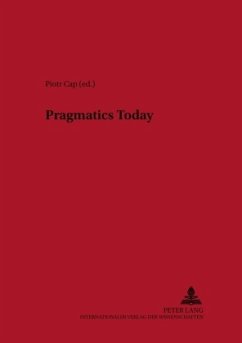
Arguing and Communicative Asymmetry
The Analysis of the Interactive Process of Arguing in Non-ideal Situations
Versandkostenfrei!
Versandfertig in 6-10 Tagen
104,20 €
inkl. MwSt.

PAYBACK Punkte
0 °P sammeln!
Why is it that people are often inclined to accept irrational arguments or to reject rational ones? It is, the author argues, because discussions in everyday life are both dialectical - conducted with the best possible solution in mind - and rhetorical - organized by the interactors in the form of a discursive event. By combining argumentation theoretical and discourse analytical insights and revisiting ancient and medieval rhetoric and dialectics, this study transcends the assumption of a symmetrical communicative situation in which only "good" arguments matter. It redefines dialectical conce...
Why is it that people are often inclined to accept irrational arguments or to reject rational ones? It is, the author argues, because discussions in everyday life are both dialectical - conducted with the best possible solution in mind - and rhetorical - organized by the interactors in the form of a discursive event. By combining argumentation theoretical and discourse analytical insights and revisiting ancient and medieval rhetoric and dialectics, this study transcends the assumption of a symmetrical communicative situation in which only "good" arguments matter. It redefines dialectical concepts, e.g., acceptability or conclusiveness, from a rhetorical and dialogic perspective and is thereby able to address colloquial speech arguing as the inherently asymmetrical discursive event it is.












